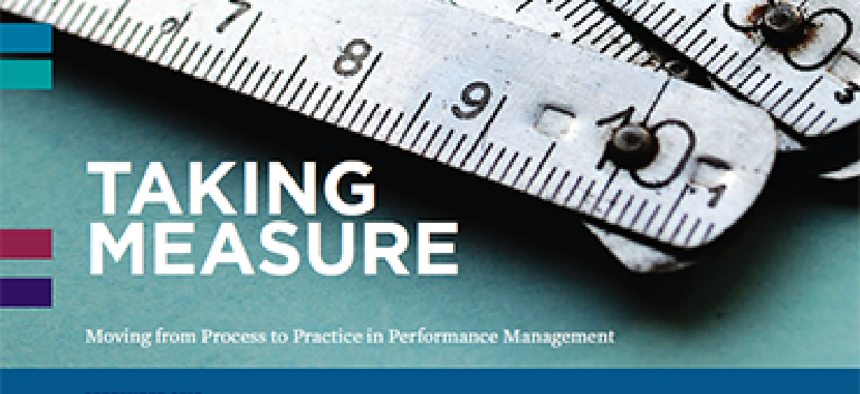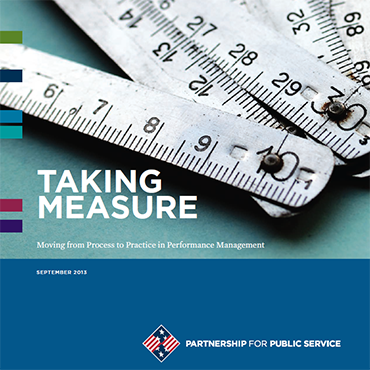Disconnect: Performance management and budgeting

After three years, there is still inconsistent application of performance information to agency budgeting, survey finds.

What: "Taking Measure: Moving from Process to Practice in Performance Management" by the Partnership for Public Service.
Why: The performance measurement regime under the Government Performance and Results Modernization Act of 2010 has been in effect for almost three years. The law created agency chief operating officer and performance improvement officer roles, with the goal of collecting and using data on agency performance to accelerate improvements. While federal PIOs surveyed by the Partnership for Public Service and audit firm Grant Thornton reported success in setting up the structure required to improve performance culture, there is still inconsistent application of performance information to agency budgeting, especially in far flung bureaus and components.
The majority of the 50 PIOs and deputy PIOs surveyed reported that agencies were not using performance data to direct decision-making or budgeting. Cultural changes are largely taking place at the top of organizations, but the results of those shifts are not filtering throughout large organizations. Additionally, fewer than one-third of those surveyed thought Congress was using performance data to any great extent in the execution of its oversight responsibilities. "The people who created [the law] have no direct awareness of what they've created," one PIO said.
Implementing a massive cultural change across the federal enterprise is a heavy lift. "It's one thing to come up with an assessment of a program. It's another thing to have programs use it to improve performance -- and it ain't easy stuff to do," said John Mercer, a Senate staffer who worked on the original 1993 version of the law.
The report recommends that COOs and PIOs use their positions to influence agency leaders and Congress to look at performance data as a tool in budgeting, decision-making, and oversight. Additionally, performance leaders should drive efforts out to sub-agencies and components to instill a "vibrant and sustainable performance culture" throughout the enterprise.
Verbatim: "Agencies need to learn from other organizations that are using performance information to inform budget formulation and execution. This involves sharing knowledge across agencies and working with congressional staff members who rely on agencies' performance data to devise useful approaches for executive and legislative staff and decision makers. Making a clear connection between performance and budget decisions has not been easy, but successful agencies think it is essential if leaders are to manage effectively and improve performance."
Read the report: Partnership for Public Service.



